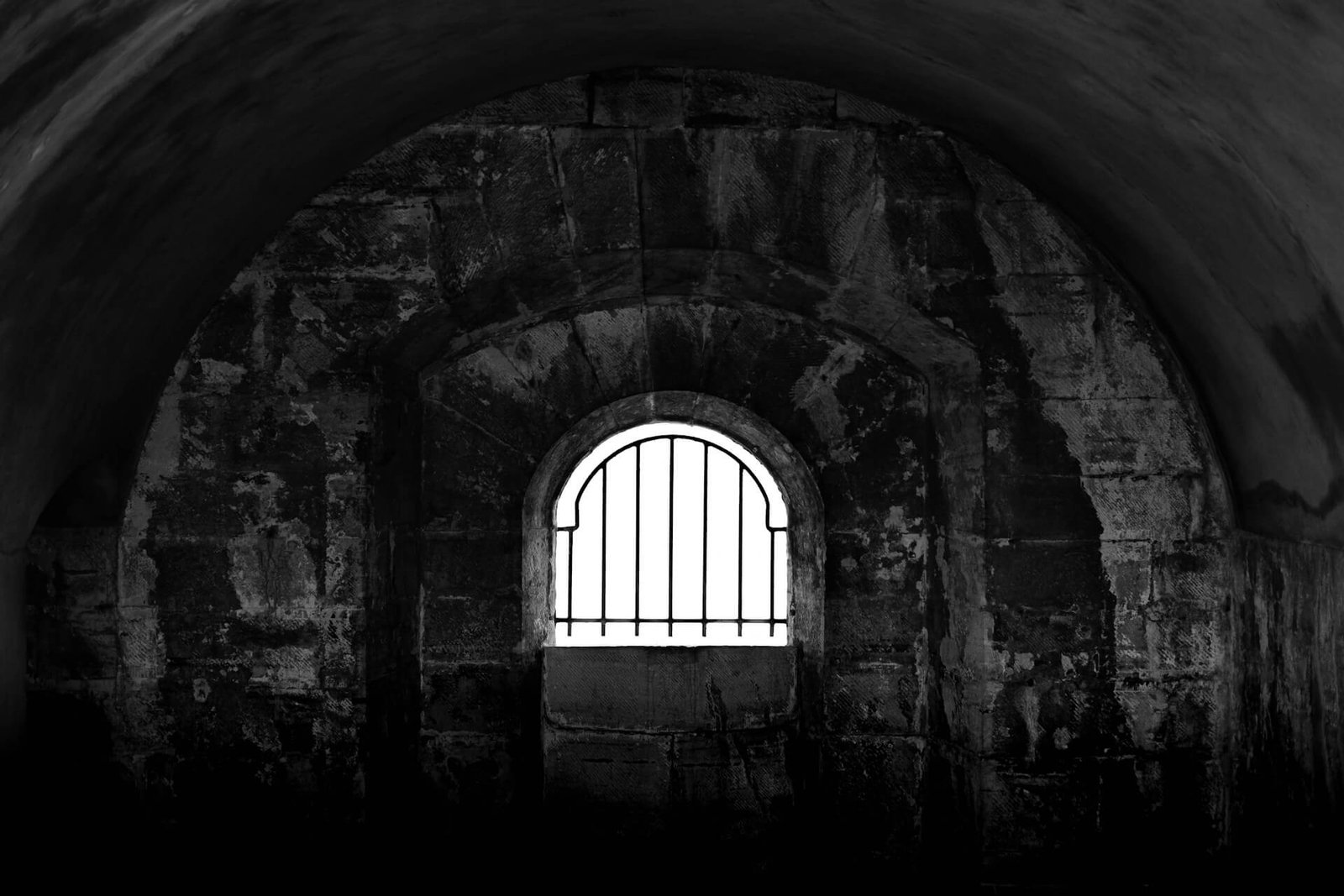Fear is a universal experience. It creeps into our hearts during sleepless nights, whispers doubts in moments of uncertainty, and sometimes paralyzes us when we’re on the verge of something great. Whether it’s fear of failure, rejection, the unknown, or even fear of not being enough, it can weigh heavily on our minds, emotions, and spirits. But for those of us who follow Jesus, there’s a powerful antidote to fear: faith. Faith in God’s promises, His character, and His unending love can transform the way we face life’s challenges. In this post, we’ll explore how you can practically and spiritually overcome fear through faith in Jesus. Let’s dive in with hope, knowing that faith is stronger than any fear we’ll ever face.
What the Bible Says About Fear
The Bible addresses the topic of fear with remarkable clarity, acknowledging it as a universal human experience while providing a divine perspective that liberates us from its control. Fear, in its many forms, is something every person encounters, whether it’s anxiety about the future, dread of failure, or terror in the face of danger.
Yet, Scripture is unwavering in its message that fear is not meant to dominate our lives. Instead, the Bible positions faith in God as the unshakable foundation that anchors us amidst life’s storms. For example, Isaiah 41:10 offers a powerful promise: “So do not fear, for I am with you; do not be dismayed, for I am your God. I will strengthen you and help you; I will uphold you with my righteous right hand.” This verse serves as a lifeline, reminding us that God’s presence is not a distant concept but an active, sustaining force that empowers us to overcome fear.
Similarly, 2 Timothy 1:7 reinforces this truth by declaring, “For God has not given us a spirit of fear, but of power and of love and of a sound mind.” This passage clarifies that fear is not a gift from God; rather, He equips us with strength, love, and mental clarity to face challenges. By rooting ourselves in these promises, we cultivate a faith that not only confronts fear but transforms it into an opportunity to trust God more deeply.
Responding to Fear
The Bible also provides practical guidance for responding to fear, emphasizing the active choice to trust in God even when emotions threaten to overwhelm us. Psalm 56:3 captures this beautifully in its simplicity: “When I am afraid, I put my trust in you.” This verse reflects a deliberate act of faith—a decision to shift focus from the source of fear to the sovereignty of God. It’s a reminder that trust is not a passive feeling but an intentional stance we take, especially in moments of vulnerability.
Joshua 1:9 further amplifies this call to action: “Have I not commanded you? Be strong and courageous. Do not be afraid; do not be discouraged, for the Lord your God will be with you wherever you go.” Here, God’s command to Joshua is both a challenge and a comfort, urging courage while assuring His constant presence. These verses collectively build our faith by highlighting God’s unchanging nature—His faithfulness, His power, and His nearness. They teach us that fear, while real, does not have the final word. Instead, by choosing to trust in God’s promises, we align ourselves with His strength and find the courage to move forward, no matter the circumstances.
The Difference Between “Fear of the Lord” and Paralyzing Fear
A critical distinction in Scripture is the difference between the “fear of the Lord” and the paralyzing fear that seeks to derail us. The fear of the Lord, as described throughout the Bible, is a holy reverence—an awe-inspired recognition of God’s majesty, holiness, and authority. This type of fear draws us closer to Him, fostering a deeper relationship built on worship and obedience. It is a faith-filled posture that honors God’s greatness while humbling us in His presence.
In contrast, paralyzing fear is a destructive force, often weaponized by Satan to undermine our spiritual vitality. As John 10:10 warns, “The thief comes only to steal and kill and destroy,” and fear is one of his primary tools to rob us of peace, extinguish our joy, and thwart our God-given purpose. Yet, faith in God’s truth serves as a powerful antidote, exposing fear as a lie that cannot withstand the light of His promises. When we immerse ourselves in Scripture, we begin to see fear for what it truly is—a temporary shadow that pales in comparison to God’s eternal reality.
By anchoring our faith in the unchanging truths of the Bible, we dismantle fear’s hold on our hearts and step into the freedom and purpose God intends for us.
The Nature of Faith in Christ
So, what is faith? At its core, faith is a profound and multifaceted concept that lies at the heart of a relationship with Christ. Hebrews 11:1 offers a timeless definition: “Now faith is confidence in what we hope for and assurance about what we do not see.” This verse captures the essence of faith as more than mere belief in God’s existence; it is an active, living trust in Him, especially when life’s circumstances are shrouded in uncertainty.
Faith involves choosing to rely on God’s promises over fleeting emotions, particularly in moments when fear or doubt threatens to overwhelm. It is not a passive acceptance but a dynamic relationship with Jesus, cultivated through an intimate knowledge of Him. Romans 10:17 further illuminates this, stating, “Faith comes from hearing the message, and the message is heard through the word about Christ.” By consistently engaging with Scripture—reading, studying, and meditating on God’s Word—we allow the Holy Spirit to deepen our understanding of God’s character and strengthen our faith.
This ongoing immersion in the Bible transforms faith from an abstract idea into a tangible, growing connection with the living God, enabling us to trust Him more fully with each step of our journey.
Faith is not synonymous with blind optimism, wishful thinking, or a naive denial of life’s challenges. Rather, it is a deliberate, conscious decision to anchor ourselves in the unchanging truth of God’s character—His goodness, sovereignty, wisdom, and boundless love. When fear or uncertainty attempts to drag us into the mire of doubt, faith serves as a steadfast anchor, grounding us in the reality that God is always for us, as Romans 8:31 boldly declares: “If God is for us, who can be against us?” This trust is not conjured in a vacuum but is built upon a foundation of God’s proven faithfulness. Reflecting on past experiences—whether through answered prayers, unexpected provision, or the strength to endure trials—fuels the growth of our faith.
Each moment of God’s intervention in our lives becomes a testimony that reinforces our confidence in Him. Far from being a static attribute, faith is dynamic, transforming fear into an opportunity to draw nearer to Jesus. It invites us to surrender our anxieties at His feet, trusting that He is working all things together for our good and His glory, even when the path ahead remains unseen.
Read: Having Faith in God’s Plan When Life Seems Uncertain

The Root of Fear and Its Effects
Fear often sneaks into our lives through subtle cracks in our confidence, manifesting as uncertainty, past trauma, or even spiritual warfare that challenges our trust in God. It might begin as a fleeting, seemingly harmless thought—a quiet “what if” that plants a seed of doubt: What if I fail at this new venture? What if I’m rejected by those I love or respect? What if God doesn’t come through in the way I expect or need? Left unchecked, these thoughts can spiral into a torrent of worry, growing into an overwhelming force that disrupts our mental clarity, shapes our decisions, and strains our relationship with God.
Fear clouds our minds with anxiety and confusion, creating a fog that makes it difficult to discern truth from deception or to hear God’s voice clearly. It influences our choices, often paralyzing us with indecision or prompting us to shrink back from the bold steps God calls us to take, such as pursuing a ministry, mending a relationship, or stepping out in faith. Worst of all, fear distorts our perception of God’s character, whispering insidious lies that He is distant, indifferent to our struggles, or powerless to intervene.
For example, a person who has experienced betrayal may project those wounds onto God, struggling to believe He is trustworthy, even though Scripture assures us that God is faithful (Deuteronomy 7:9). These lies, if not confronted, can build walls between us and the One who offers peace, leaving us feeling isolated and vulnerable.
Recognizing The Root
To combat fear’s grip, we must recognize its roots and actively resist its influence. Uncertainty often arises when we face the unknown, such as a career change or a health crisis, and trauma can leave scars that make us wary of trusting again. Spiritual warfare, as described in Ephesians 6:12, can intensify these fears, with the enemy exploiting our vulnerabilities to sow doubt about God’s goodness. The effects of fear are far-reaching: it can lead to physical symptoms like sleeplessness or tension, emotional turmoil like irritability or despair, and spiritual stagnation as we hesitate to pray or seek God’s guidance.
Yet, by identifying the source of our fear and bringing it before God, we can begin to dismantle its power. For instance, journaling our fears and countering them with specific promises from Scripture, such as Psalm 23:4 (“Even though I walk through the valley of the shadow of death, I will fear no evil, for you are with me”), can shift our perspective. Fear may be a natural human response, but it doesn’t have to define us. By choosing to lean into God’s truth and presence, we can replace fear’s lies with the assurance of His love and sovereignty, restoring our ability to move forward with courage and clarity.
When we allow fear to take root in our hearts, it acts like a corrosive force, gradually eroding the foundation of our faith in God’s promises. Just as a small leak can weaken an entire structure over time, unchecked fear seeps into our thoughts, causing us to question the very truths we once held firm. This is vividly illustrated in the story of the Israelites in the wilderness (Exodus 16). Despite witnessing God’s miraculous provision—parting the Red Sea, providing manna from heaven, and guiding them with a pillar of fire—they succumbed to fear when faced with uncertainty, doubting whether God would continue to provide. Their fear led to grumbling, disobedience, and even a desire to return to slavery in Egypt, showing how fear can distort our perspective and make us forget God’s past faithfulness.
Similarly, in our lives, fear can cause us to overlook God’s track record—perhaps the times He provided financially, healed a relationship, or carried us through grief—leading us to doubt His ability or willingness to act in our present circumstances. Fear distorts our view of God, painting Him as unreliable or unconcerned, but faith serves as the antidote, restoring our vision to see Him as He truly is: a loving, powerful, and ever-present Father.
Faith, grounded in God’s Word, is the key to uprooting fear and reclaiming a clear view of His character. By intentionally focusing on God’s truth, we can combat the lies fear tells us and anchor ourselves in His promises. For example, when fear whispers that God is distant, we can turn to Hebrews 13:5, where God assures us, “I will never leave you nor forsake you.” When fear suggests that God’s plans are uncertain, we can cling to Jeremiah 29:11, which declares that His plans are for our welfare, to give us “a future and a hope.”
Practically, this might look like meditating on Scripture during moments of anxiety, praying for discernment to recognize fear’s lies, or sharing our struggles with a trusted friend or mentor who can point us back to God’s truth. The story of David facing Goliath (1 Samuel 17) exemplifies this: while others were paralyzed by fear of the giant, David’s faith in God’s power enabled him to act with courage, trusting that the same God who delivered him from a lion and a bear would deliver him again. By cultivating a habit of recalling God’s faithfulness—through prayer, worship, or recounting His past interventions in our lives—we strengthen our faith and diminish fear’s hold.
Ultimately, faith reminds us that God is near, that He is good, and that His plans for us are rooted in His unchanging love, empowering us to move forward with confidence no matter the challenges we face.
Read: How to Transform Anxiety into Courage and Strength Through Faith
How Faith Combats Fear
Faith is our shield against fear. The Bible, in Ephesians 6:16, calls us to “take up the shield of faith, with which you can extinguish all the flaming arrows of the evil one.” These flaming arrows represent the relentless, fear-filled thoughts that the enemy hurls at us—doubts, anxieties, and lies that threaten to unravel our peace. Fear might whisper that we are inadequate, that danger is imminent, or that we’re alone in our struggles, but faith stands as a divine barrier, intercepting and neutralizing these attacks before they can take root. Faith is not a passive hope; it’s an active choice to trust in God’s promises over our circumstances.
One powerful way to wield this shield is by speaking God’s truth aloud, turning scripture into a weapon against fear. For instance, when fear taunts, “You’re not enough,” faith boldly counters with 2 Corinthians 12:9: “My grace is sufficient for you, for my power is made perfect in weakness.” By vocalizing this truth, we align our minds with God’s perspective, reminding ourselves that His strength fills our gaps. This practice transforms our inner dialogue, replacing fear’s lies with the unshakable reality of God’s Word.
Over time, as we consistently declare scripture, our confidence in God’s promises grows, fortifying our shield of faith and making it an instinctive response to fear’s assaults.
Praise and Worship
Another faith-building practice is praise and worship. When we choose to worship, we shift our focus from the magnitude of our fears to the majesty of our God. In moments of anxiety, lifting our eyes to Jesus through worship can dismantle fear’s grip on our hearts. Songs that proclaim God’s greatness, sovereignty, and love act like a spiritual reset, reorienting our perspective to see God as bigger than any threat we face.
For example, singing lyrics that echo Psalm 46:1—“God is our refuge and strength, an ever-present help in trouble”—can anchor us in the truth that we are never alone. Worship doesn’t deny the reality of our challenges; instead, it reframes them in light of God’s power and presence. Prayer is another vital practice in this battle, as it invites God’s peace to stand guard over our hearts and minds (Philippians 4:6-7). When we surrender our fears to God in prayer, we exchange our burdens for His assurance, trusting that He is both willing and able to handle what overwhelms us.
Additionally, faith grows stronger when we reflect on God’s past faithfulness. Recalling specific moments when God provided, protected, or guided us—perhaps through a financial crisis, a health scare, or a relational storm—builds a reservoir of trust we can draw from. Instead of being consumed by “what if” scenarios that fuel anxiety, faith anchors us in “God is” truths: God is faithful, as He has proven time and again; God is able, with power far beyond our comprehension; and God is near, closer than our very breath. By cultivating these practices, we train our hearts to default to faith, diminishing fear’s ability to dominate our thoughts.
Here are some practical faith steps to combat fear:
- Declare Scripture: Make it a daily habit to speak God’s Word over your life, especially when fear creeps in. For example, recite Psalm 23:4: “Even though I walk through the darkest valley, I will fear no evil, for you are with me.” Personalize this verse by inserting your specific situation, such as, “Even though I face this uncertainty, I will fear no evil, for You are with me.” Write down a few key verses on note cards or save them as phone reminders to have them readily accessible. Speaking scripture aloud not only reinforces God’s truth in your mind but also engages your senses, making the act of faith more tangible and powerful
- Worship: Engage in intentional worship to strengthen your faith and weaken fear’s hold. Create a playlist of songs that magnify God’s character—songs like “Great Is Thy Faithfulness” or modern worship anthems that declare His goodness. Listen to these songs during your commute, while working, or in moments of anxiety. If possible, sing along, allowing the lyrics to become your prayer. Worship isn’t just about music; it’s about posture. Even in silence, you can worship by meditating on God’s attributes, such as His love, power, or faithfulness, which can shift your focus from fear to trust.
- Pray: Develop a rhythm of prayer that includes both surrender and supplication. When fear arises, pause and pray, honestly pouring out your worries to God. Then, ask Him to replace your fear with His peace, trusting that He hears and responds (1 John 5:14). Consider incorporating a breath prayer for quick moments of anxiety: inhale while silently praying, “God, You are my peace,” and exhale, “I release my fear to You.” This simple practice can ground you in God’s presence, calming your mind and body.
- Remember: Build a “faith memory bank” by documenting God’s faithfulness in your life. Keep a journal or a digital note where you record specific instances when God came through for you—perhaps a time He provided unexpected resources, healed a relationship, or gave you strength in a trial. When fear threatens to overwhelm you, revisit these entries to remind yourself of God’s track record. You might also create a visual reminder, like a small stone or object you can carry, symbolizing a past victory God gave you. These memories act as fuel for your faith, empowering you to face new challenges with confidence in the God who never changes (Hebrews 13:8).
Examples from the Bible
The Bible is full of stories where faith triumphed over fear. The scriptures are a rich tapestry of human experiences, showcasing individuals who, despite overwhelming odds or terrifying circumstances, chose to trust in God’s power and promises.
One vivid example is found in Mark 4:35-41, where Jesus and His disciples were crossing the Sea of Galilee when a fierce storm arose. The waves battered the boat, and the disciples, many of whom were experienced fishermen, were gripped by panic, fearing for their lives. In their desperation, they woke Jesus, who was asleep in the stern, and cried out, “Teacher, don’t you care if we drown?” With divine authority, Jesus stood and spoke to the storm, saying, “Quiet! Be still!” Immediately, the wind ceased, and the sea became calm.
The disciples’ fear transformed into awe as they witnessed His power over nature itself, prompting them to ask, “Who is this? Even the wind and the waves obey Him!” This moment not only strengthened their faith but also revealed Jesus’ identity as the Son of God, capable of overcoming any chaos.
Similarly, the story of David and Goliath in 1 Samuel 17 illustrates faith’s victory over fear. David, a young shepherd, faced the Philistine giant Goliath, who stood over nine feet tall and was armed with formidable weapons. The Israelite army, including King Saul, was paralyzed by fear, intimidated by Goliath’s taunts and physical prowess. Yet David, armed only with a sling and five stones, approached the giant with unwavering confidence in God’s deliverance. He declared, “The Lord who rescued me from the paw of the lion and the paw of the bear will rescue me from the hand of this Philistine” (1 Samuel 17:37). David’s faith was rooted in his past experiences of God’s faithfulness, which emboldened him to face an enemy that seemed insurmountable.
His victory was not just a personal triumph but a testimony to the power of trusting in God’s strength rather than human ability.
Esther’s Courage and Deep Faith
Esther’s story is another example of faith overcoming fear. In the book of Esther, we encounter a young Jewish woman who rose to the position of queen in the Persian Empire, only to face a life-threatening crisis. Haman, a high-ranking official, devised a plot to annihilate the Jewish people, unaware that Esther herself was Jewish. Approaching King Xerxes to plead for her people’s lives was fraught with danger, as Persian law forbade anyone from entering the king’s presence uninvited, under penalty of death.
Esther’s cousin Mordecai urged her to act, suggesting that she had been placed in her royal position “for such a time as this” (Esther 4:14). After calling for a fast among the Jews, Esther resolved to take the risk, declaring, “I will go to the king, even though it is against the law. And if I perish, I perish” (Esther 4:16). Her courage was not born of recklessness but of a deep faith in God’s providence and purpose. When she approached the king, he extended his scepter, sparing her life, and later granted her request to save her people.
Esther’s story demonstrates that faith often requires bold action in the face of uncertainty, trusting that God is working behind the scenes.
Peter’s Tension Between Faith and Fear
Another compelling example is Peter’s walk on water in Matthew 14:22-33. During a stormy night on the Sea of Galilee, the disciples saw Jesus walking toward them on the water and were terrified, thinking He was a ghost. When Jesus identified Himself, Peter, in a moment of bold faith, asked to join Him on the water. Miraculously, Peter stepped out of the boat and began walking toward Jesus, his eyes fixed on the Savior. But as the wind and waves intensified, Peter’s focus shifted, and fear overtook him, causing him to sink. Crying out, “Lord, save me!” Jesus immediately rescued Peter, who gently rebuked him, saying, “You of little faith, why did you doubt?”
This story highlights the tension between faith and fear, showing that faith sustains us when we keep our focus on Christ, but fear can overwhelm us when we fixate on our circumstances. Yet even in Peter’s moment of failure, Jesus’ grace was evident, as He reached out to lift him up, demonstrating that faith in Him restores us even when we falter.
Acknowledging Our Fears But Refusing To Let Them Dictate Our Actions
These stories remind us that faith isn’t the absence of fear—it’s trusting God in the midst of it. The Bible does not present faith as a state of fearless invincibility but as a deliberate choice to rely on God’s character and promises, even when fear is present. The disciples in the storm, David before Goliath, Esther approaching the king, and Peter stepping onto the water all experienced fear, yet they chose to act in faith, trusting that God was greater than their challenges.
Their stories reveal a pattern: faith involves acknowledging our fears but refusing to let them dictate our actions. Instead, it calls us to lean into God’s faithfulness, which has been proven time and again throughout scripture. In each of these accounts, God was faithful—calming the storm, defeating the giant, delivering the Jewish people, and rescuing Peter from the waves. These examples encourage us to reflect on our own lives, where we may face storms, giants, or risks that evoke fear. They challenge us to ask: Will we trust God’s power and purpose, as these biblical figures did? Their victories were not due to their own strength but to the God in whom they placed their trust.
As Hebrews 11:1 reminds us, “Faith is confidence in what we hope for and assurance about what we do not see.” By choosing faith over fear, we open the door for God to work in and through us, just as He did in the lives of these biblical heroes, proving that He is faithful every time.
Read: How to Apply Biblical Principles to Everyday Challenges
Practical Mindset Shifts
Shifting from a fear-based to a faith-based worldview starts with our thoughts. Romans 12:2 urges us to “be transformed by the renewing of your mind.” This means recognizing fear-based thoughts and replacing them with faith-filled truths. For example, instead of thinking, “I can’t do this,” faith says, “I can do all things through Christ who strengthens me” (Philippians 4:13).
Building a “faith habit” can help. Try journaling God’s promises daily—write out verses like Deuteronomy 31:6: “Be strong and courageous. Do not be afraid or terrified because of them, for the Lord your God goes with you; he will never leave you nor forsake you.” Make daily declarations of faith, speaking God’s truth over your life. Surround yourself with godly voices—friends, pastors, or podcasts that encourage your faith. These habits strengthen your faith and weaken fear’s hold.
The Role of the Holy Spirit
The Holy Spirit is our Comforter, guiding us into all truth (John 14:26). When fear tries to overwhelm us, the Spirit reminds us of God’s promises, building our faith. Jude 1:20 encourages us to “build yourselves up in your most holy faith and pray in the Holy Spirit.” Praying in the Spirit strengthens our courage and aligns our hearts with God’s will.
The Holy Spirit also renews our minds, helping us reject fear and embrace faith. When we invite the Spirit to lead us, He replaces anxiety with peace and doubt with confidence. Faith in the Spirit’s presence empowers us to face fear with boldness, knowing we’re never alone.
Reflection and Application
Take a moment to reflect: What fear are you currently facing? Is it fear of the future, failure, or something else? Now, consider what promise of God you can hold onto today. Maybe it’s Psalm 27:1: “The Lord is my light and my salvation—whom shall I fear?” Write down one fear and match it with a Scripture of faith. This simple act can shift your perspective and strengthen your faith.
Make a commitment to practice faith daily. Choose one faith-building habit—whether it’s declaring Scripture, worshiping, or journaling—and start today. Your faith will grow, and fear will lose its power.
Closing Encouragement and Prayer
You are not alone in your fears, but you don’t have to be ruled by them. Faith in Jesus is your weapon, your shield, and your victory. God is with you, just as He was with David, Esther, and Peter. His promises are true, and His love for you is unshakable. Come back to this post whenever fear feels heavy, and let faith rise in your heart.
Let’s pray together:
Heavenly Father, I thank You for Your presence that drives out all fear. I lift up every reader facing fear today, and I ask that You fill them with faith in Your promises. Holy Spirit, comfort their hearts and renew their minds. Help them trust You more, knowing You are faithful. Break the chains of fear and ignite a bold faith that glorifies You. In Jesus’ name, Amen.
Keep walking in faith, dear friend. God is with you, and His perfect love casts out all fear (1 John 4:18).





